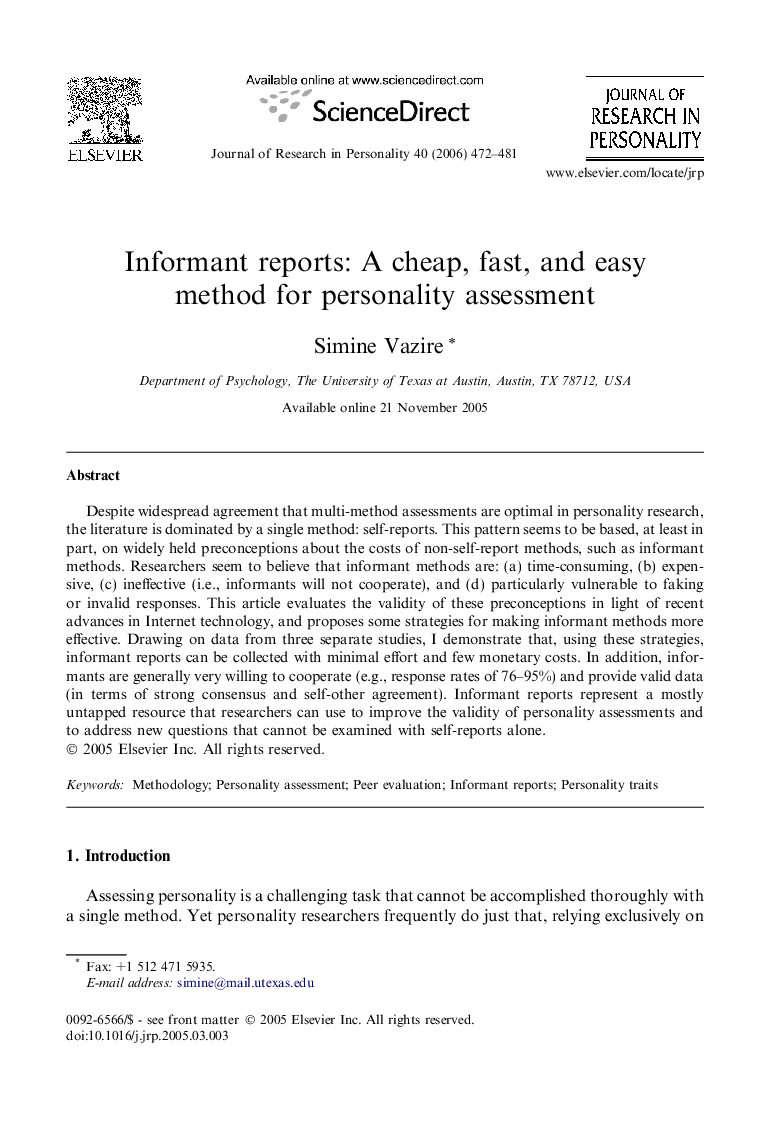| Article ID | Journal | Published Year | Pages | File Type |
|---|---|---|---|---|
| 951973 | Journal of Research in Personality | 2006 | 10 Pages |
Despite widespread agreement that multi-method assessments are optimal in personality research, the literature is dominated by a single method: self-reports. This pattern seems to be based, at least in part, on widely held preconceptions about the costs of non-self-report methods, such as informant methods. Researchers seem to believe that informant methods are: (a) time-consuming, (b) expensive, (c) ineffective (i.e., informants will not cooperate), and (d) particularly vulnerable to faking or invalid responses. This article evaluates the validity of these preconceptions in light of recent advances in Internet technology, and proposes some strategies for making informant methods more effective. Drawing on data from three separate studies, I demonstrate that, using these strategies, informant reports can be collected with minimal effort and few monetary costs. In addition, informants are generally very willing to cooperate (e.g., response rates of 76–95%) and provide valid data (in terms of strong consensus and self-other agreement). Informant reports represent a mostly untapped resource that researchers can use to improve the validity of personality assessments and to address new questions that cannot be examined with self-reports alone.
